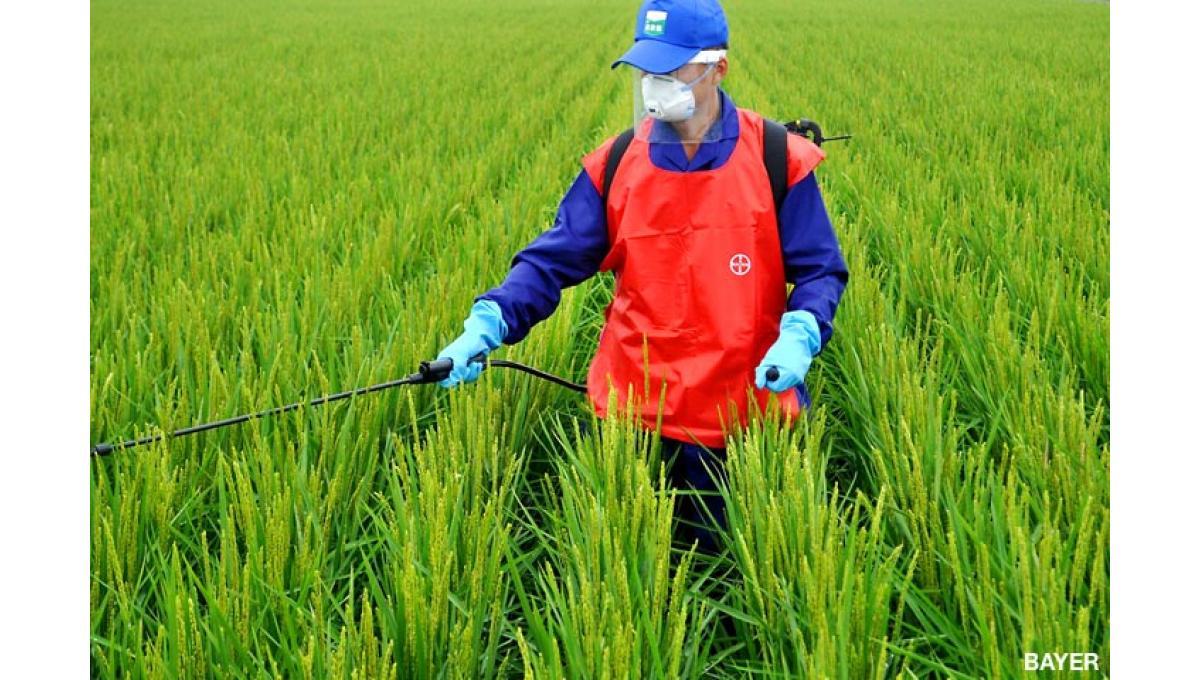Technology in the Field: Drones Revolutionize Farmer's Lives

Can you imagine spending eight hours a day navigating muddy paddy fields in hot and humid environments, carrying heavy solution in a backpack sprayer to protect one hectare of rice? This is the hard reality of the average rice farmer in Asia.
Asian rice farmers face the challenge of finding workers to do such cumbersome, but critical agricultural tasks that bear potentially dire consequences. In the short-term, fields left unprotected against diseases and insects run the risk of returning a lesser, lower quality yield. However, the younger generation’s lack of interest in assuming this kind of work elevates the average age of the modern farmer and threatens future succession.
What if this labor-intensive job could be done in 10-15 minutes?
Fortunately, modern technology offers the potential to alleviate some of the burdens that accompany the production of one of the world's staple crops. Bayer's future-facing mindset and commitment to open innovation that fuels more productive and sustainable agriculture have enabled drones to not only assume grueling rice paddy crop protection application tasks but complete them with greater accuracy and consistency.
Typically, one thinks of drones for their imaging capabilities. However, a battery-powered multi-rotor drone can feature an automatic filling tank designed to match exact field sizes and trace terrains through height sensors that maintain a constant distance above fields. These versatile drones can also fly and land autonomously as well as detect and avoid mid-flight obstacles.
With the potential for improved crop protection efficiency comes the potential for more sustainable management of rice paddies and comparable fields. Drone application requires less water and reduces the overall volume of solution application compared with the “cover all” strategy of most human-led spraying. Replacing a diesel-powered sprayer with an electric battery-powered drone also conserves fuel.
Taking initial flight
There are many reasons why this new technology is gaining traction across the global agriculture spectrum. Beyond elevated yield potential, multi-rotor drones present a faster, safer application compared to hand spraying. Autonomous loading and distribution capabilities limit human exposure to crop protection solutions, and targeted overhead flight prevents interference with growers or other crops in the field.
The main advantage of drone application, however, remains the ability to apply just the right amount of treatment in the locations where it’s needed. If suitably designed, adjuvants in crop protection products can ensure good delivery of active ingredients at lower spray volumes and dramatically advance farmers’ rice management potential. Additionally, we have seen how the downdraught air stream of the rotors pushes the plant canopy open and facilitates the spray droplets to reach not only the top but also the base of the plant, thus increasing the efficiency of the application and overall product efficacy.
Identifying new airspace
The successes of the initial drone usage in Chinese rice paddies are capturing the attention of other global farmers and creating new opportunities for Bayer to enable growers to use drones to enahnce ag processes around the world. Follow-up pilots are underway in Japan, Korea and Latin America, with other potential applications in discussion.
In late 2020, Bayer additionally took a major step to introduce this pioneering drone technology to farmers throughout the U.S. by forming a strategic partnership with Rantizo – a software and applications developer whose platform integrates with drones to identify crop protection issues and deliver precise in-field crop input applications.
With greater grower understanding and comfort of this technology comes the potential for expanded use and benefit. Based on the initial achievements in rice fields, Bayer is beginning to collaborate with growers to explore drones’ capabilities to aid in corn, sugar cane, wheat, vegetable, banana, grape and citrus harvests.
Shaping the future of farming
Young people especially see the new business opportunity here and are increasingly offering drone spraying services. We are delighted to see how technology is engaging a new generation in agriculture and will hopefully reverse the trend of an aging population of farmers. Bayer is fully engaged in this technology. The benefit it will bring to agriculture and farmers is one more way in which we are shaping the future of farming.

